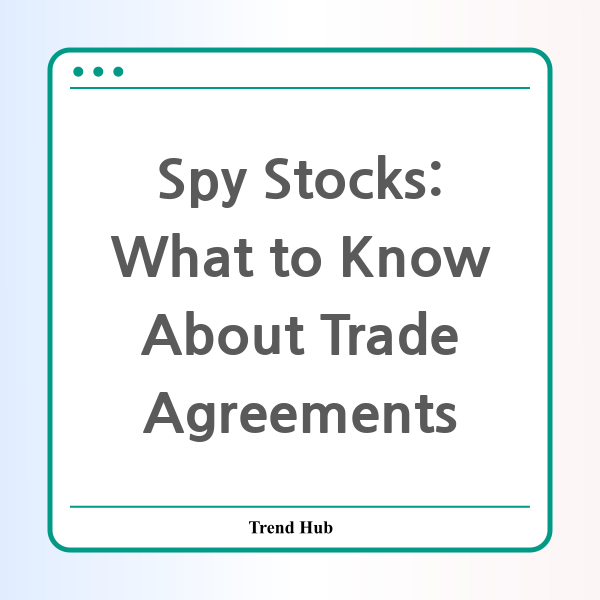* This website participates in the Amazon Affiliate Program and earns from qualifying purchases.

In the dynamic world of investing, few events can cause a seismic shift like a significant trade agreement. With the recent surge in US stock futures following a tentative deal between the US and China to lower tariffs, the financial landscape is once again in flux. But what does this mean for investors, especially for those eyeing 'spy stocks'—companies that thrive during turbulent economic times?
The latest movement saw the S&P 500 futures soar by 2.8%, while the Dow Jones Industrial Average futures jumped by over 900 points, marking a remarkable 2.2% increase. The tech-heavy Nasdaq 100 led the surge, skyrocketing by 3.6%. This surge in the market comes as fresh hope emerges from trade negotiations aimed at reducing tariffs by a substantial margin. Treasury Secretary Scott Bessent announced that the two nations would agree to slash most tariffs for a 90-day period, setting the stage for further discussions.
Investors have been feeling the pinch lately, with inflation fears gripping markets as the reality of previous tariffs hits home. Notably, the US inflation expectations are at their highest level in over four decades, and the ramifications of newly imposed tariffs are expected to reflect significantly on American consumers. This week promises critical data releases that will shed light on the initial inflationary impacts as traders eagerly await earnings reports from major companies including Fox Corporation, Chegg, and Walmart.
The backdrop of the current market scenario isn't just marked by optimism; it's also about navigating complexities. The US-China relations have oscillated dramatically, and with President Trump’s aggressive tariff policy setting a high stakes game, the fluctuations in stock prices are often reactions to shifting narratives in negotiation outcomes. Just days ago, Dow futures experienced a jump of over 427 points after signals of 'substantial progress' emerged from Geneva, where US officials engaged with their Chinese counterparts.
Here's where the concept of 'spy stocks' comes into play. These are typically companies or sectors that maintain or even gain value in uncertain economic environments. As markets react to geopolitical tensions and trade deals, savvy investors often look towards sectors like technology, healthcare, and certain consumer goods that demonstrate resilience.
For those interested in spy stocks, understanding how tariffs impact different industries can be crucial. Sectors that rely heavily on global supply chains or exports may experience volatility, whereas companies positioning themselves advantageously in domestic markets might stand to benefit when tariffs are lifted.
In conclusion, the evolving situation between the US and China presents a unique opportunity for investors to analyze and potentially invest in spy stocks. With the potential for tariffs to decrease and negotiations to foster better relations, being alert to market movements and trade intricacies could lead to lucrative opportunities. Now is the time for investors to gather insights, assess risks, and position their portfolios wisely in anticipation of the impending shifts in market dynamics.
* This website participates in the Amazon Affiliate Program and earns from qualifying purchases.